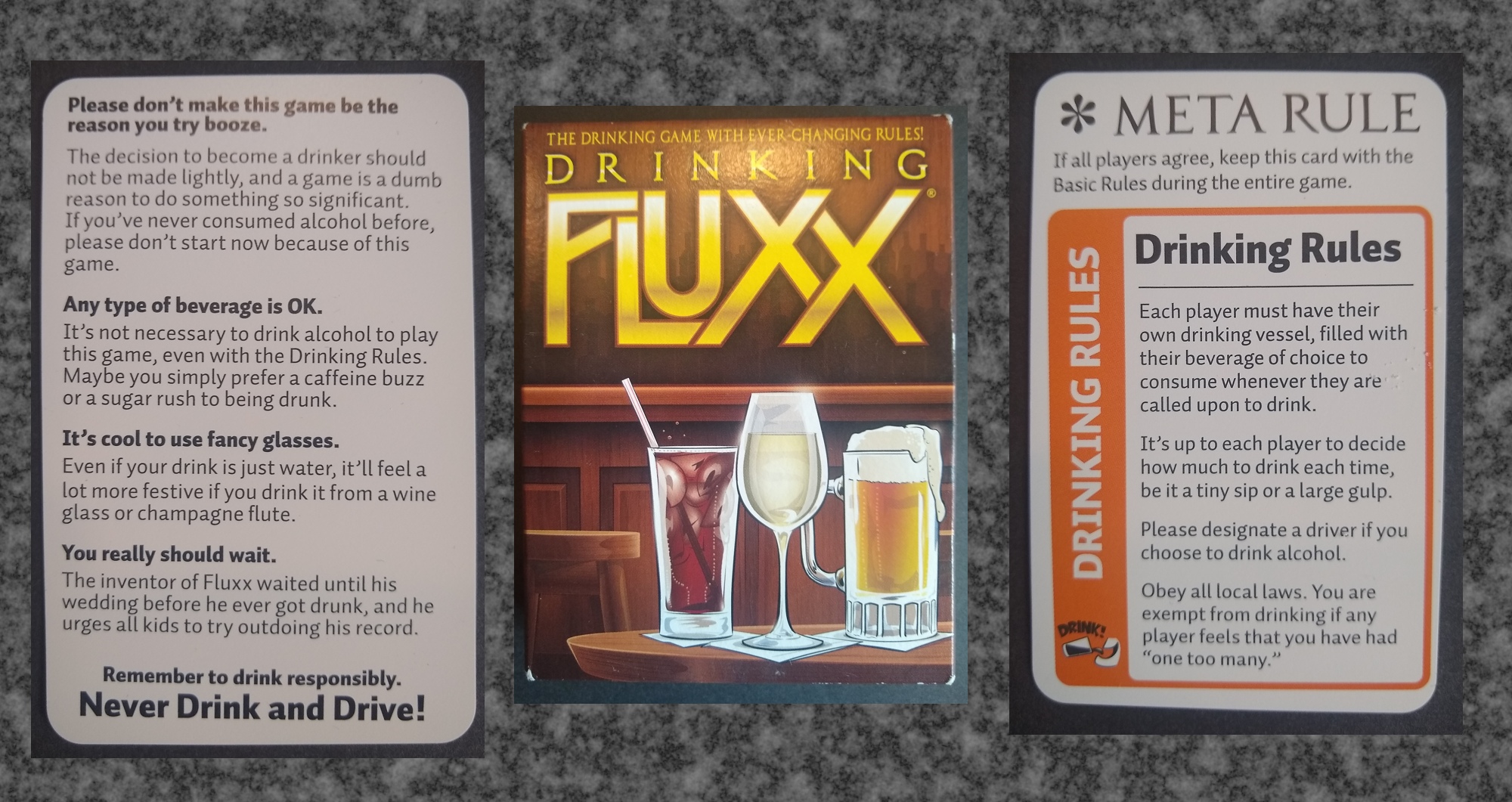Fluxx by Looney Labs is one of those games that doesn’t get a lot of love on BGG–and, to be honest, I don’t find myself wanting to play too often–yet it sells well in the mass market. Right now, I see dozens of variants for sale on Amazon, including the core currently ranked as #79 in dedicated deck card games (right behind Joking Hazard).
My friend’s copy of Drinking Fluxx got me thinking about how players’ behavior can draw attention to a game, amplifying its table presence. I’ve previously noted that dice rolling and simply getting people past rules to actually set up and play can both amplify table presence. And what’s more attention-grabbing than a bunch of drunk goofballs yukking it up once the game begins? For what it’s worth, several BGG reviews say that the drinking aspect adds fun to the game (which has a rating of 6.3 versus 6.0 for the vanilla version).
Looney Labs says players don't need to drink alcohol to play the game. I'm personally not a fan of drunkenness, entertaining though the resulting antics sometimes may be. Regardless of how you feel about Fluxx and/or alcohol, we can learn from this game. Shall we proceed?
3 tactics
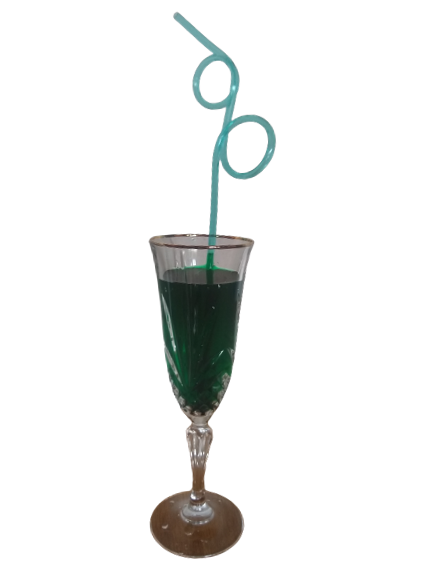
Use players’ belongings: The game’s reference card (above) encourages players to “use fancy glasses” because any beverage will “feel a lot more festive if you drink it from a wine glass or champagne flute.” This is a great example of getting players to contribute their own belongings to your game’s table presence. In this case, encouraging players to get as crazy as possible would maximize the effect of this tactic. You see a similar tactic in games like D&D where players often acquire and paint miniatures to amplify the table presences.
Direct actions: Several cards direct players to take specific actions that will surely draw attention from across the room. For example, the first card below directs a player to touch his nose until all but 1 player does the same, while the other requires a player to hold the card to the forehead. If I see this kind of thing down the restaurant from me, I’m going to wonder what game they’re playing.
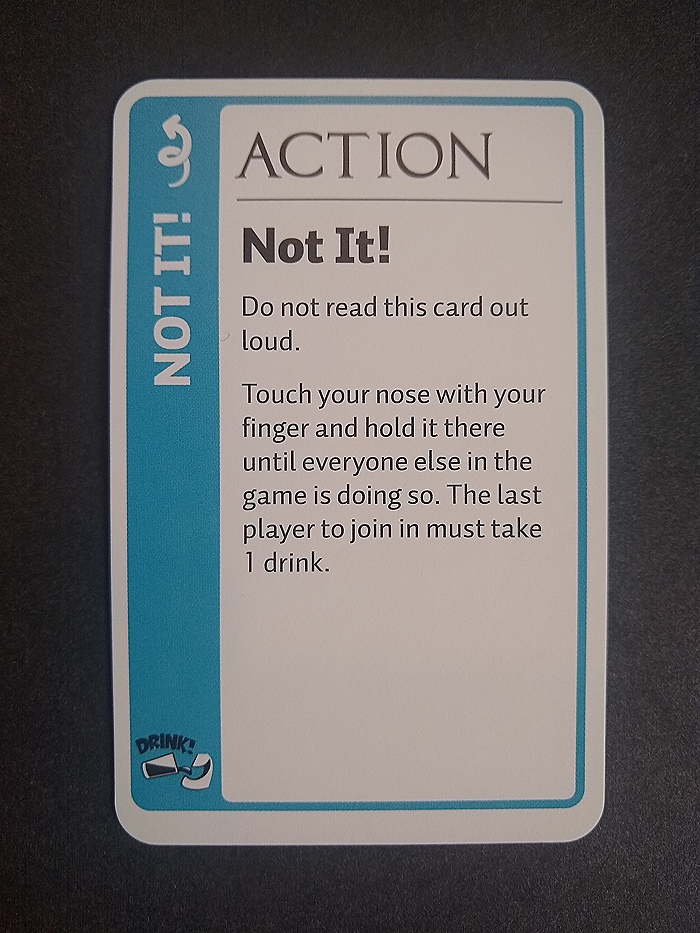
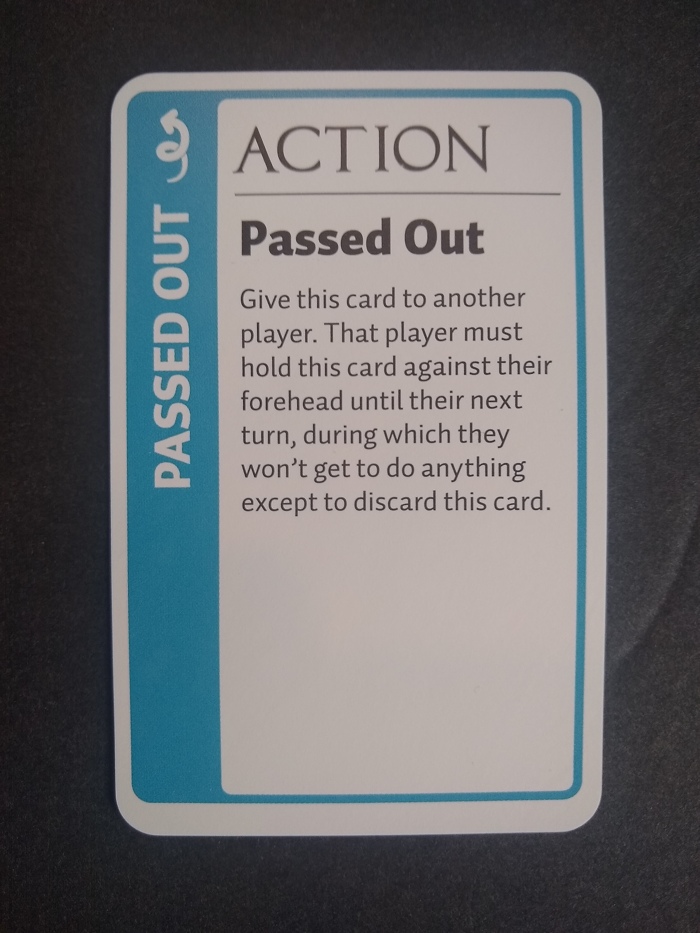
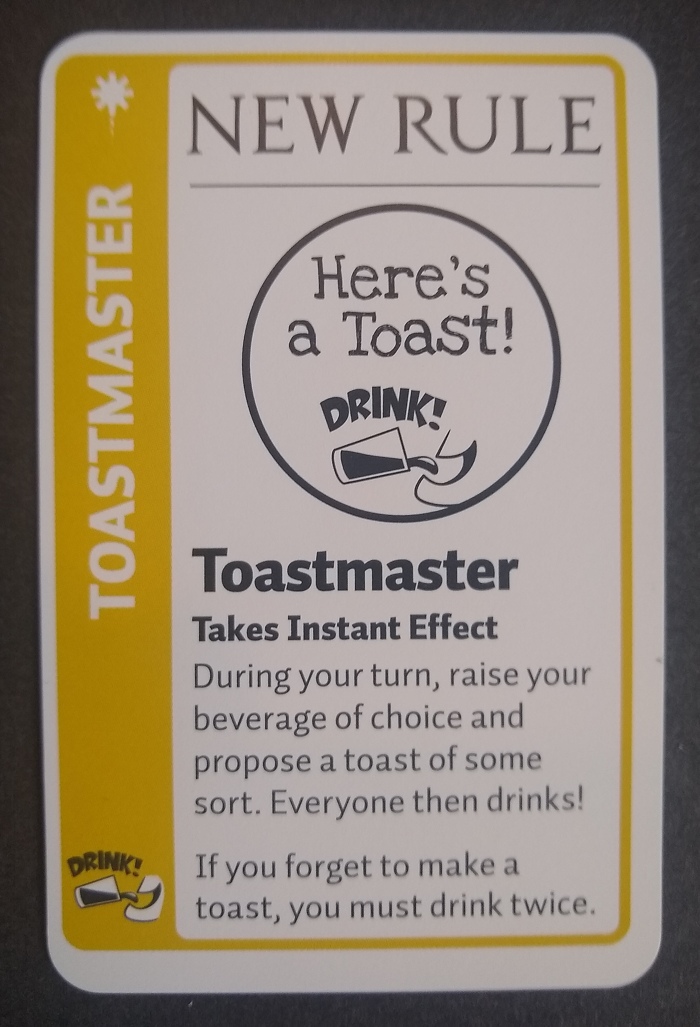
Add vocalization: The game has several cards that direct words in connection with actions. For example, the card to the right directs the player to make a toast, and all players must then take a drink.
Depending on the theme of the game, I could imagine something similar that explicitly directs players to say something as silly, loudly, or otherwise attention-grabbing as possible. This is the kind of thing that I’d expect from a Steve Jackson kind of game.
What about Euros?
I could imagine seeing these tactics adapted for use in drawing attention to Eurostyle games.
Use players’ belongings: For example, I am developing a game that includes quite a few pieces that could be implemented with miniatures or cardboard standees. I’m leaning toward Kickstarting the game next year with cardboard standees, plus STLs that players could print and paint for themselves. Moreover, the board is designed to be compatible with awesome miniatures that players could take from another game and use when they play mine. Think of how the players will feel: if they already have paid a lot of money for excellent miniatures, why shouldn’t they get to reuse those in other games when thematically and mechanically compatible?
Direct actions: I’ve previously mentioned how the dice tower in Wingspan gets players to reach across the table when loading the dice. Plus, it makes that cool clacking noise. You can get similar reaching actions through the strategic placement of draw piles, token supplies, and other objects. You could get some motion with spinners or piles of dice–with suitable luck-mitigation techniques as necessary to ensure that the game appeals to Eurogamers. And, you could have mechanics that require all players to simultaneously do a coordinated action, such as drafting cards clockwise around the table as in 7 Wonders.
Add vocalization: Eurostyle games are not known for loud discourse! However, you might be able to stimulate some loud vocalizations by creating situations where players need to silently accumulate cards or other components with private information, until they have a highly desirable combination that they can then activate. The key might be to stimulate exuberance and an element of surprise upon the other players.
What other tactics have you seen for getting players to amplify your game’s table presence? I think this is a somewhat under-examined (though not necessarily under-used) aspect of Euro table presence, and I’m keen to know your thoughts.
